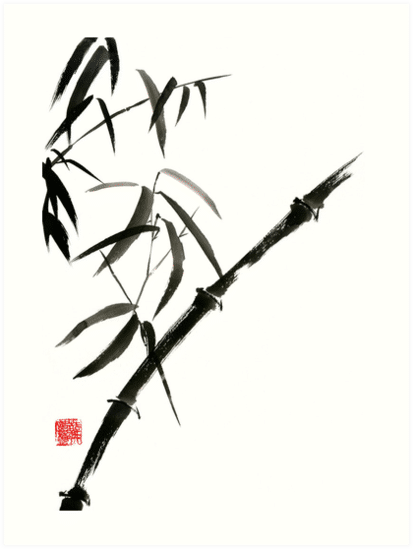by Trudy Boyle
Last New Year’s Eve, my spouse asked me what I wanted to get done in 2004. He wondered what I wanted to achieve, and what projects I wanted to start. It is a natural question as a New Year rolls around, yet my reaction was not what he expected. I said something like, “I want to do less not more.” Considering all of the things I need to do in my life this struck him as an odd answer.
Most of us have experienced that without focused direction we can easily fritter away our time and look back at a year where, as CS Lewis puts it, “not only did I not get done what I should have done but I didn’t get done what I wanted to do either.”
But now I’m rethinking the tradition of setting goals even as I continue this ritual myself and can’t imagine not taking out a blank sheet of paper on the morning of the 1st and contemplating the New Year in front of me. I am filled with vigour for the task and have high hopes for the faithful execution of each and every goal I carefully write out. I verify that each one is specific, realistic, controllable by me, and time measurable. I write them in my day timer so I can read them everyday.
I don’t take this process lightly. My husband and I spend part of New Year’s Eve writing out our eulogies (we’re a real fun couple) albeit it with a glass of champagne. And at the end of every year I look at my goals from the previous New Year noting with pride what I have achieved, rather like adding another notch to my belt for each goal completed. Yet often I am disappointed with myself for the failures that appear year after year on my list although they had seemed achievable when I wrote them.
And for me this is the crux of the matter. In North America we have a way of life that promotes goal setting, hard work, long hours, anything is possible, and the just do it mentality. We now equate this expression with “running shoes,” and for many of us this is an accurate way to characterize life in much of western society, running from one task to another. When we fail to live up to this standard we assume rightly or wrongly that we have failed. Yet the question I ask myself now isn’t about success or failure but rather whose goal-setting standard am I using and what kinds of goals are being measured.
As an example, let’s take the goals of finishing a university degree, having an organized home and office, working our way up the career ladder, going to the gym three morning’s a week, making a million dollars, and caring for the garden. It’s not that these goals aren’t useful or worthy — rather they are limited to a view of success mostly defined as “progress” by contemporary western standards.
I’m picturing our rock garden now. I have specific steps related to caring for the garden—the planting, the care and feeding of tender shoots, the weeding, the maintenance of mature plants, the clean up and so on. The garden takes hours of care. I notice, however, there is no goal to just sit in the garden beside the fragrant rosebush for 30 minutes twice a week. Why not?
As bright busy adults we don’t consider the reflective aspects of our lives even worthy of goals; we attempt to fit them in when we have time. Whether it is sitting in the garden, listening to music, practicing yoga, doing Naikan, or some other form of contemplative practice, we become almost apologetic to “take the time” for ourselves. Yet Socrates said, “the unexamined life is not worth living.”
As children, my sister, cousins and I did examine our lives at the beginning of each year. We made resolutions that were more about developing our character, eliminating bad habits and cultivating virtue than making a precise list of what we wanted to achieve for the New Year. In retrospect, I think that we were expected to do what we needed to do to be a good student or do a good job. Character development, however, was not taken for granted. It seemed to require work. Perhaps now it is the opposite. Our good character is simply assumed and we consider our goals for success the ones we need to work on.
My resolutions were often to be kind to my sister, not to be saucy to my Mother, to always tell the truth, to do my best, to be helpful to my Grandmother everyday. These resolutions would be written out and my sister and I would compare our lists and read them off to our Mom. By making them public the pressure was on to try and live up to them. Although we didn’t keep all of them, or even keep one of them all the time, we didn’t forget them either. The exercise seemed more like a gentle measuring stick, as opposed to a policeman’s club, which reminded us that these traits were important to strive for, and very difficult to cultivate on a consistent basis.
Of course we need goals to grow our business, finish our thesis, and complete our manuscripts. But we don’t want to achieve those goals at the expense of our relationships with others. I want to make sure my goals include time to reflect, time to cultivate healthy, loving relationships with spouse, children, and friends. What that implies is that I will need to leave space in my New Year for others: time to listen to music with my husband, time to ski with my grandsons, a date to fly to Ottawa in February for my daughter’s birthday, time and money put aside to attend a friend’s book launch. I need to safeguard time to have lunch with a friend once a month; have a date with my husband once a week, and a few times a year have a cup of tea and a long distance telephone visit with friends who aren’t nearby.
It also means I need to make resolutions similar to the ones I had as a child. I don’t need a resolution to be kind to strangers or friends or my Mom—I’m pretty good at that. A more useful resolution for me might be something like: be especially kind to my husband while writing an article under pressure, even when tired, discouraged and uncertain as to how to get it all done.
Ah! This resolution is more difficult. I have observed that under pressure it is easy to be careless and thoughtless with the ones we live with. It is easy to make assumptions, say the first thing that comes to mind, or in general become bossy or short tempered. It takes a split second to interrupt or snap at a loved one, while expecting him to understand. After all he loves you. After all there is a deadline.
And so I think there is something valuable for all of us in a list of New Year’s resolutions that includes more than our traditional goals for the year. It may be worth considering our relationship with others, both how we want to treat others, and how we measure our efforts. Taking quiet time to regularly reflect on our lives may be the most important resolution of all.
Trudy Boyle is the former Assistant Editor of Thirty Thousand Days and is currently serving as Chairperson of the North American Naikan Council.
Tags: Action Getting Things Done Kindness Mental Wellness New Year's Relationships












